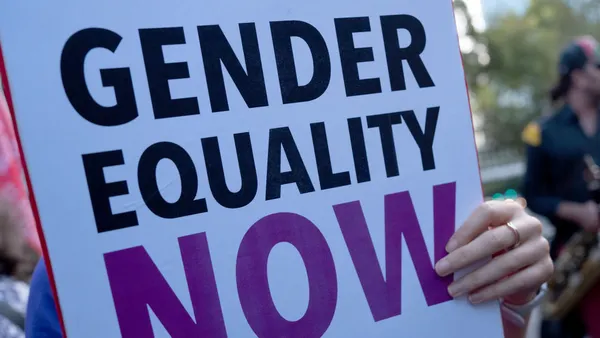Dive Brief:
- A former Paramount executive alleged Friday that he was fired because of his age and race — a move he tied to the company’s DEI goals (Jerome v. Paramount Global).
- The production attorney, who is White, was 58 years old at the time of his termination, according to the lawsuit.
- He alleged he was fired as part of a purported reduction in force, but replaced with a non-White, 25-year-old employee. Paramount did not respond to a request for comment.
Dive Insight:
The claims in Jerome echo those in other “reverse” discrimination claims filed in recent months — claims that attorneys say they expect to see more of in the coming years.
For example, a former manager at a Pennsylvania-area Walmart last month alleged he was fired for complaining about the conduct of two African American senior leaders. He tied his complaints to the retail giant’s DEI program, which he claimed “implicitly promoted racism and explicitly encouraged the hire, retention, and promotions of individuals based on illegal qualifications of race.” Walmart has not yet filed a response to the complaint.
Workers have seen mixed success with these lawsuits. While some employers have entered into settlement agreements with employees making reverse discrimination claims, the 9th U.S. Circuit Court of Appeals said last week in one such lawsuit that employees must point to more evidence than a DEI statement to show discrimination.
Those lawsuits and others are making their way through the courts as some employers also face pressure from the Trump administration to scrap DEI programs. Paramount itself announced the elimination of diversity-related staffing goals earlier this year, and in July confirmed the elimination of its DEI initiatives to gain the government’s approval for its merger with Skydance.
Employment law attorneys have reminded employers that they’ve long been forbidden from engaging in discrimination based on protected characteristics, and that the government’s focus remains on “illegal” activity. That means employers should not jettison their DEI programs entirely, one expert previously wrote for HR Dive; instead, “focus on the inclusion of diverse talent [—] without unlawful preferences, exclusions or messages.”














